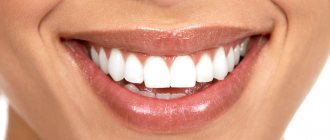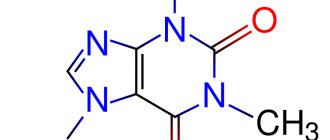Does Coffee Really Increase Estrogen Levels in Women? If so, how dangerous is it? How does coffee affect your health, and in what quantities can you drink it so as not to harm yourself? And is it even possible to drink it? These are the questions asked by everyone who cannot imagine their life without a cup of coffee for breakfast. Many people consider drinking this drink dangerous. Others argue that, on the contrary, it tones and gives strength, coffee and estrogen are independent and that there can be nothing harmful in it. Who is actually right, and whether coffee is harmful or beneficial for women is not difficult to figure out.
Estrogen is the collective name for female sex hormones
The effect of coffee on hormonal levels in women
This drink contains several components that, from a certain point of view, can be called harmful. The most active and best known of them is caffeine. This is a strong drug, the content of which in medium-strength coffee is about 1 mg per 1 ml of drink. The mechanism of its effect on the body, like all narcotic substances, is to disrupt the functioning of chemical receptors in the central nervous system. Coffee may seem like it gives you strength, but in reality it just tricks your brain.
It seems to the body that it has strength, but in fact it is working at the limit. But this is far from the biggest danger. This effect is achieved by gross interference in the mechanism of humoral regulation. Normally, the ratio of hormones in all parts of the body is strictly defined and changes in a stressful situation. This is how the interaction of all organs and their systems is regulated. The function of controlling the production of hormones is assigned to the pituitary gland. Caffeine changes its functioning, forcing it to synthesize estrogens. This is a scientific fact confirmed by scientists all over the world.
During life, women may experience a natural increase in estrogen levels, but this is accompanied by a proportional change in the amount of progesterone, prolactin and other hormones. This way the balance is maintained. Under the influence of caffeine, only estrogen synthesis increases, which can have serious consequences. The balance of these hormones ensures the functioning of the digestive, circulatory and lymphatic systems, the rate and volume of muscle tissue cell synthesis, the functioning of the reproductive and mammary glands, blood clotting and vascular permeability. All this is disrupted by the drink you drink. Of course, not immediately and not from one cup, but with regular use in large quantities.
Impact on men
Men consider caffeine to be a panacea that has a positive effect on hormones and potency: it is one of the powerful natural aphrodisiacs that stimulate sexual desire, help maintain an erection and increase the time of lovemaking. It is also believed that caffeine increases the production of sperm in the testicles. These assumptions are correct, but they apply exclusively to healthy men. If impotence is diagnosed, there will be no negative or positive results on sexual functions. But this does not mean that you need to constantly drink coffee for health. If you drink more than two cups a day, an excess supply of the female sex hormone, estrogen, will begin. And over time, an excess of caffeine contributes to potency disorders. If a man has prostatitis, then coffee consumption should also be reduced so as not to develop an irritating effect.
What are the dangers of excessive coffee consumption for women?
As already mentioned, coffee and estrogen are dependent. And almost all parts of the body suffer from this, but especially the mammary and reproductive glands. Drinking this drink is contraindicated in case of endometriosis. Any fluctuations in sex hormones will lead to unpleasant consequences. But excess estrogen also has an adverse effect on a healthy reproductive system. Dysfunction of the uterus can lead to complications during pregnancy. A woman who regularly drinks a lot of coffee may lose the ability to bear a child. And if destructive processes also affect the ovaries, then she may become completely infertile.
The threat of cancer is no less terrible. An increase in the concentration of estrogen in the blood leads to hyperfunction of the reproductive and mammary glands. This can cause the appearance of fibrocystic neoplasms in them, and in especially severe cases leads to cancerous tumors. Less frightening, but also unpleasant consequences include menstrual irregularities, painful menstruation, and the release of large blood clots. There is a deterioration in the mental state, nervousness, irritability, sleep disturbances, depression, general fatigue, headaches, dryness and pain in the eyes, hair loss and some other negative effects that depend on the individual characteristics of the body.
How much caffeine can you have?
Of course, this does not mean that the smallest amount instantly leads to the development of cancer, and many people ask how much coffee to drink per day. The above symptoms may occur with excessive consumption of the drink. There is a certain limit that should not be exceeded. The problem is that it is different for each person. The body has the ability, up to a certain point, to compensate for the shift in the equilibrium of the content of active substances. Such dynamic equilibrium (homeostasis) is possible only within the threshold value of the amount of substance entering the body.
One person can drink six cups of coffee in a day without any harm, while another will get a serious hormonal imbalance even after two. Therefore, everyone should clearly know their norm and not exceed it. As a rule, a small portion of coffee in the morning at breakfast does not cause problems.
But if you drink 0.5 liters at once, which corresponds to 500 mg of caffeine, then the estrogen content in the blood almost doubles, which already poses a threat.
Coffee is not a poison, and there is no need to completely give it up if you really want to. Although this drink does not give anything useful to the body. And most importantly, you should remember that caffeine is a narcotic substance, that is, it is addictive. Therefore, it is sometimes worth limiting yourself in the desire to drink an extra cup, so as not to become dependent.
Coffee consumption alters reproductive hormone profile
13.03.2019
3990
0
Coffee reduces the risks of various diseases by modulating metabolic and inflammatory pathways. Moreover, drinks with and without caffeine have the same effect on health. This was reported by a group of Chinese and American specialists in the pages of The American Journal of Clinical Nutrition.
Coffee is one of the most popular drinks in the world. According to a 2021 report from the National Coffee Association, more than 62% of US citizens drink coffee daily. Epidemiological evidence suggests that drinking the drink is associated with a lower risk of various chronic diseases, including type 2 diabetes, cardiovascular disease and some types of cancer. However, the biological pathways underlying the link between coffee and health still remain unclear.
The development of type 2 diabetes, cardiovascular disease and a number of cancers is closely associated with hyperinsulinemia, insulin resistance, dysregulation of sex hormones and chronic inflammation. As a rich source of bioactive compounds (e.g., caffeine, chlorogenic acids, and diterpenes), coffee may induce various physiological effects and influence biomarkers of these conditions.
Previous studies have already examined the association of coffee with markers of endogenous insulin secretion (C-peptide, insulin-like growth factor 1 (IGF-1)), IGF-binding proteins (IGFBP) 1 and 3, sex hormones, adiponectin and markers of inflammation (C- reactive protein, IL-6, soluble tumor necrosis factor receptor 2 (sTNFR-2)). However, the results of these works were contradictory.
A team of American and Chinese researchers conducted a new study that comprehensively assessed 14 markers of diseases associated with coffee consumption, including insulin/IGF system (C-peptide, IGF-1, IGFBP-1, IGFBP-3), sex hormones (estrone, total and free estradiol, total and free testosterone, SHBG), adipokines (total adiponectin, high molecular weight adiponectin, leptin) and inflammatory markers (C-reactive protein, IL-6, sTNFR-2).
Data from two large prospective studies were used for analysis: the Nurses' Health Study and the Health Professionals Follow-Up Study. The first involved 15,551 women, the second - 7,397 men. All participants provided detailed data on their diet and provided periodic blood samples for analysis. At the start of the study, the subjects did not suffer from diabetes, cardiovascular disease or cancer. The authors assessed differences in biomarker levels between coffee drinkers and non-coffee drinkers using multivariate linear regression.
The analysis showed that, compared with those who did not consume coffee, those who drank more than four cups per day had lower concentrations of C-peptide (-8.7%), IGFBP-3 (-2.2%), estrone (- 6.4%), total estradiol (-5.7%), free estradiol (-8.1%), leptin (-6.4%), C-reactive protein (-16.6%), IL-6 (-8.1%), sTNFR-2 (-5.8%) and higher concentrations of SHBG (5.0%), total testosterone (7.3% more in women and 5.3% more in men ), total adiponectin (9.3%) and high molecular weight adiponectin (17.2%). The results were largely similar for natural and decaffeinated coffee. Statistical analysis confirmed the accuracy of the identified associations.
The authors found that coffee has beneficial effects on health by modulating inflammatory and metabolic pathways. At the same time, experts emphasized that despite the fact that the connection of the drink with some markers (for example, with IGFBP-3 and SHBG) is insignificant, due to its effect on multiple pathways, coffee can lead to a significant reduction in the risks of certain diseases.
Source : Am J Clin Nutr. 2019 Mar 5. pii: nqy295. doi: 10.1093/ajcn/nqy295.
Topics and tags
Male infertility
Comments
To post comments you must log in or register
Gonadotropins, that is, hormones necessary for proper childbirth
The very name of gonadotropic hormones suggests their key role in the human body. They are responsible for stimulating the activity of the human gonads, that is, the female ovaries and male testes. They are secreted by the anterior pituitary gland.
Gonadotropins primarily include:
- follicle-stimulating hormone (FSH), that is, follicle-stimulating hormone,
- luteinizing hormone (LH), called lutropin.
This group of hormones also includes human chorionic gonadotropin (hCG), released during pregnancy.
The FSH hormone in women is intended to stimulate the growth of ovarian follicles, control their development and regulate the functions of the corpus luteum. Stimulates the secretion of estrogens by granular cells of ovarian follicles.
Levels of stimulation of blood follicles depend on the woman’s age and the phase of the menstrual cycle. FSH norms in women are:
- in the follicular phase – below 12 IU/l,
- in the ovulation phase – from 20 to 90 IU/l,
- in the luteal phase – below 10 IU/l,
- during menopause – from 40 to 250 IU/l (after menopause, FSH concentration increases),
- during pregnancy – trace concentrations.
Insufficient FSH levels are usually associated with pituitary and/or hypothalamic failure. An excess, in turn, may indicate primary or acquired ovarian failure or inhibition of ovulation stimulation.
The LH hormone in women is primarily responsible for ovulation, and its main task is to regulate and control the secretion of progesterone. After the egg enters the fallopian tube, lutropin converts granulosa cells into lutein cells (which produce progesterone), and the cells of the inner layer in the follicle shell into paralutein cells (which produce estrogens).
The role of luteinizing hormone is also to support the production of progesterone and estrogen by the corpus luteum.
As with FSH, the concentration of lutropin depends on the time of the cycle and the age of the woman. LH norms for women:
- in the follicular phase – up to 5-30 IU/l,
- during ovulation – from 75 to 150 IU/l,
- in the luteal phase – from 3 to 40 IU/l,
- after menopause – 30-300 IU/l.
Too low levels of lutropin may indicate damage to the pituitary gland or hypothalamus.
On the other hand, excess LH hormone may indicate insufficient ovarian activity or neoplastic changes in the pituitary gland.
PHYTOESTROGENS EXTEND YOUTH!
What foods are advisable to include in the diet of women over 55 years of age?
Hormones play a leading role in various processes occurring in the body. For women, one of the most important hormones is estrogen, produced by the ovaries. But over time, its production fades, and the woman begins to age. Is it possible to slow down this process?
What are estrogens responsible for?
Estrogens are female sex hormones; the name estrogen literally translates as “increasing desire.” Estrogen is involved in puberty, regulates the appearance and course of the menstrual cycle, and is responsible for egg maturation, libido, fertilization, pregnancy and childbirth. That is, without estrogen, a woman would cease to be a woman and would not be able to become a mother.
But the effect of estrogens extends far beyond the reproductive sphere. For example, under the influence of estrogen, calcium is absorbed from food. When the concentration of this hormone decreases, the skeletal system suffers and osteoporosis develops.
Estrogens are also responsible for the external signs of youth: smoothness, elasticity and radiance of the skin, beauty and health of hair. Therefore, estrogens are often called the hormones of youth.
Why is it important to maintain hormonal balance?
After 40 years, the female body begins to undergo changes caused by a natural decrease in hormonal levels. As a result, hot flashes appear, sudden weight gain occurs, and problems arise with the cardiovascular, skeletal, and reproductive systems. Therefore, it is important to maintain a certain level of estrogen for good health and appearance.
A decrease in estrogen levels can occur at any stage of a woman's life. This may be due to the birth of a child, surgery on the uterus and ovaries, taking medications, or natural aging of the female body (menopause). Hormonal imbalance is a serious disorder that requires correction, and in some cases, drug treatment prescribed by a gynecologist-endocrinologist with special hormonal drugs (hormone replacement therapy).
Symptoms of decreased estrogen levels in the body:
- decreased libido, lack of sexual desire
- rapid weight gain
- hot flashes, sweating, sleep disturbances
- fast fatiguability
- depression, mood swings, irritability
- menstrual irregularities
About the dual nature of phytoestrogens
Phytoestrogens are non-steroidal (that is, non-hormonal) compounds found in plants. They are responsible for division and reproduction, and also protect the plant from excess ultraviolet rays and fungal diseases.
But here's what's interesting: phytoestrogens are able to bind to the same receptors (special protein structures on the surface of cells) as estrogens. Thus, when estrogen levels are low, phytoestrogens bind to unoccupied receptors and take over the function of estrogen. And with a high level of estrogen in the body, phytoestrogens begin to compete with them and further suppress their production.
Thus, if you have an established estrogen deficiency in your body (you need to take a blood test for hormones), phytoestrogens will take their place and have a positive effect on the body. And if your body has enough of its own estrogen, phytoestrogens will begin to displace it. Therefore, you should not pounce on foods rich in phytoestrogens until you find out how much “native” estrogen you have in your body.
Foods rich in phytoestrogens
Although phytoestrogens, which have taken on the “functions” of estrogen, are 500 times weaker than it, doctors consider it advisable not to exclude such possible help for the female body. Although, of course, you need to understand that by taking foods or herbs, infusions or dietary supplements with phytoestrogens, it is impossible to induce the growth or production of estrogen. But you can partially compensate for its functions in the body and slow down aging.
Which, by the way, is clearly visible in the example of Eastern women, especially Japanese and Chinese women, whose menus traditionally contain a lot of soy (in particular, tofu soy cheese).
Phytoestrogens are divided into three main types: isoflavonoids, lignans and coumestans.
Here's how they are distributed in food.
Flax seeds
This is truly product No. 1 in terms of the content of plant hormones (lignans group) with estrogenic activity. In addition to the hormonal effect, they have many other beneficial properties: antitumor, cleansing, antioxidant, choleretic, hepatoprotective, antithrombotic.
Flax is a source of essential plant omega-3 fatty acids, which reliably protect the heart and blood vessels from atherosclerosis.
The best way to use flax seeds is when ground with plenty of liquid (like bran), you can also add flax seeds to cereals or eat them with honey. The maximum dose is 2 tablespoons per day.
Sesame and sunflower seeds
They contain the plant hormone lignan. Add them to your salad during lunch or dinner. Daily dose – 20 g (approximately 4 teaspoons or 2 tablespoons)
Legumes: green peas, beans, chickpeas, soybeans, lentils
All of these plants contain isoflavonoids. Introduce soy into your diet carefully, carefully choosing a reliable manufacturer: 90% of this product is genetically modified. If you are not sure that soy is completely natural, it is better not to risk it.
It’s better to pay attention to another legume – lentils. It is the leader in vegetable protein content, and lentils also contain tryptophan. In the body, it turns into serotonin, a hormone of joy that protects against depression. It takes 15-20 minutes to cook lentils.
Wheat bran
Check out this inexpensive and healthy option for supplementing a healthy diet. Wheat bran is the husk of wheat grains. This is an excellent phytosorbent; bran is rich in B vitamins, potassium and magnesium. Beneficial properties: cleanse the body, normalize microflora and regulate intestinal function, relieve intoxication due to dietary errors and taking a large number of medications, improve metabolism, help reduce hunger and can be used in weight loss programs.
Coffee beans
Coffee is the most popular biologically active drink of plant origin, rich in bioflavonoids. Research shows that women who drink up to 300 ml of coffee per day increase their estrogen levels by 70%. But moderately elevated levels of this hormone make it difficult to lose weight. Decide for yourself what is more important to you: being slimmer or looking younger longer. Nutritionists recommend reducing the consumption of natural grain (not instant!) coffee to 1 cup in the morning, then it will only bring benefits.
Apricots
Among fruits, they are the leaders in the content of the hormone lignan. You can eat apricots fresh or dried (apricots, dried apricots). Apricot pulp contains a lot of pectin (phytosorbents) and provitamin A (beta-carotene), an important component for healthy skin and hair.
Brewer's yeast (dry)
It is a storehouse of microelements: phosphorus, potassium, sodium, magnesium, copper, selenium, sulfur and zinc, a valuable source of B vitamins and essential amino acids. Brewer's yeast is a biologically active product containing natural estrogens, isoflavonoids and coumestans. Used for decreased immunity, hormonal imbalance, skin problems, hair loss and brittle nails.
Medicinal herbs
Estrogens are found in herbs: red clover, sage, hops, arnica, chamomile, stevia, licorice root, etc. You can brew tea from herbs and drink 1/3 cup of it throughout the day.
Parsley, carrots, cabbage
These vegetables contain phytoestrogens, but it makes sense to consume them only fresh. Cooking destroys the beneficial substances in these crops, including phytoestrogens.









